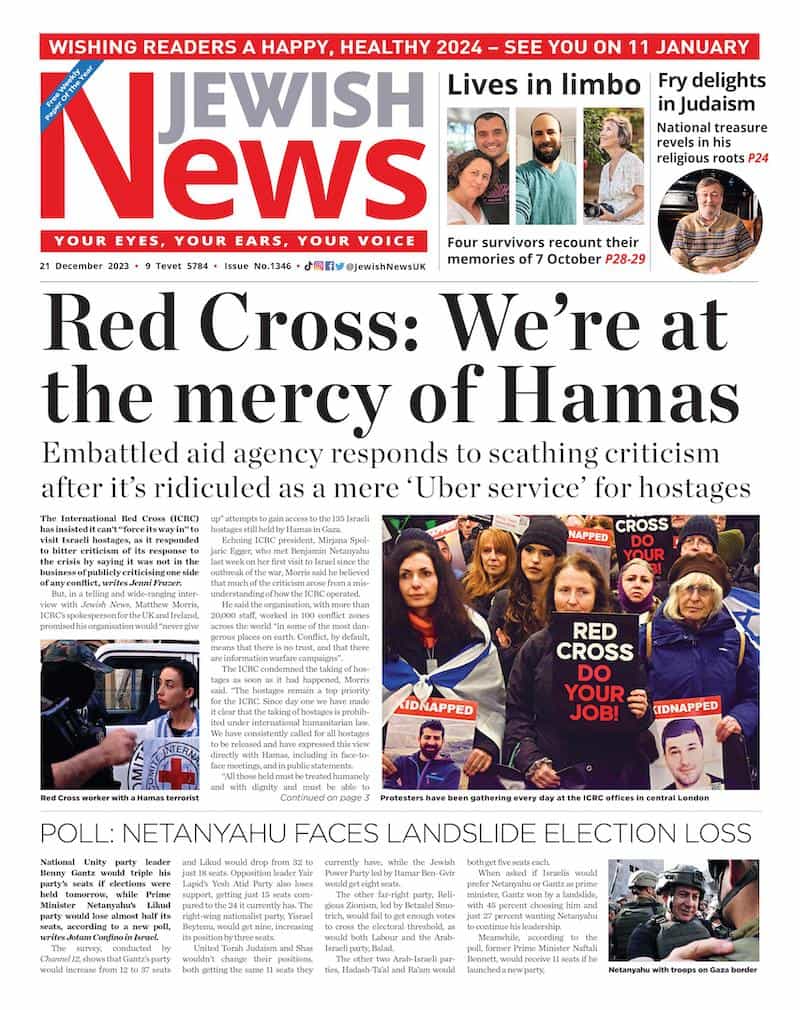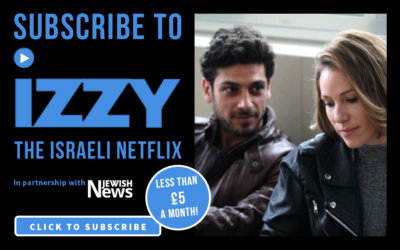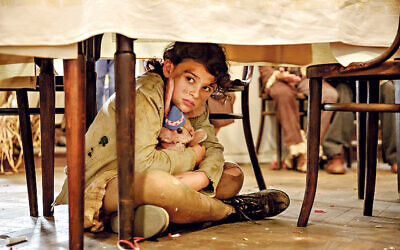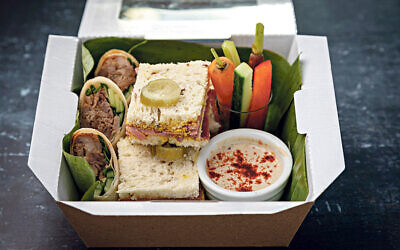The little-known gathering of Islamic scholars providing hope to rabbis
Jewish News joins more than 250 Muslim leaders at a forum in Abu Dhabi set up to tackle extremism
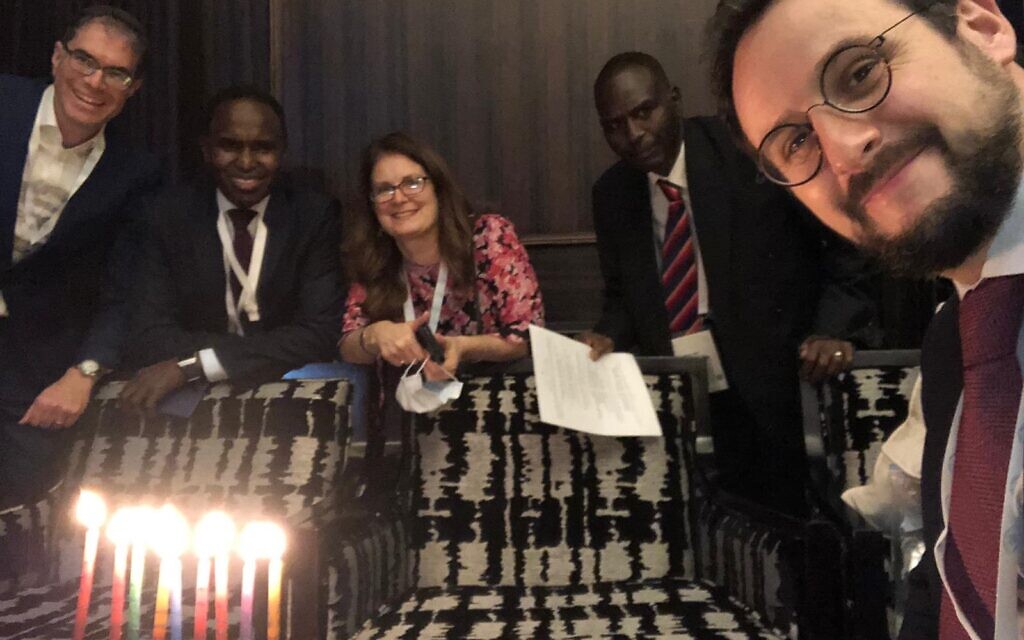 Dr Mohamad Senousi and his brother Omer Senousi, alongside Rabbi Yehuda Sarna, Rabbi Shoshana Boyd Gelfand and the AJC's Ari Gordon
Dr Mohamad Senousi and his brother Omer Senousi, alongside Rabbi Yehuda Sarna, Rabbi Shoshana Boyd Gelfand and the AJC's Ari Gordon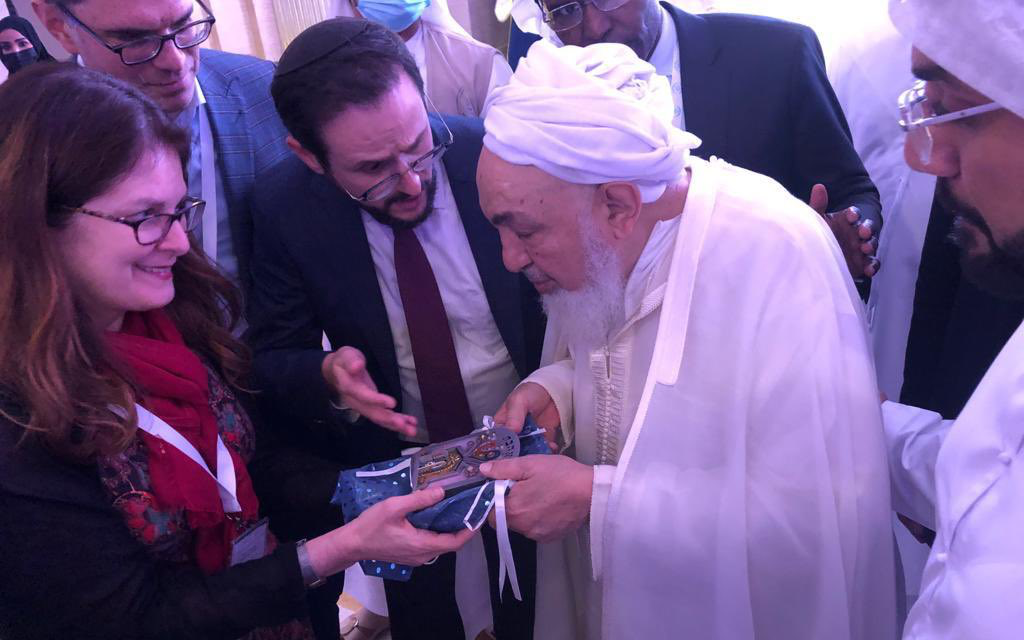 Rabbi Yehuda Sarna, Rabbi Shoshana Boyd Gelfand and the AJC's Ari Gordon presented a tzedakah box to Sheikh bin Bayyah at the Forum in Abu Dhabi
Rabbi Yehuda Sarna, Rabbi Shoshana Boyd Gelfand and the AJC's Ari Gordon presented a tzedakah box to Sheikh bin Bayyah at the Forum in Abu Dhabi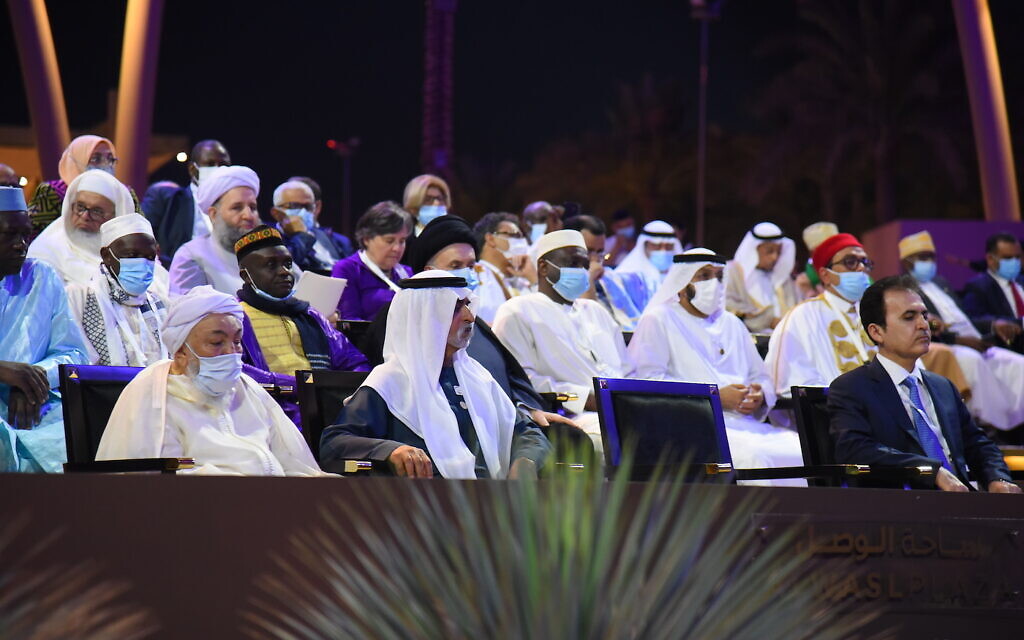
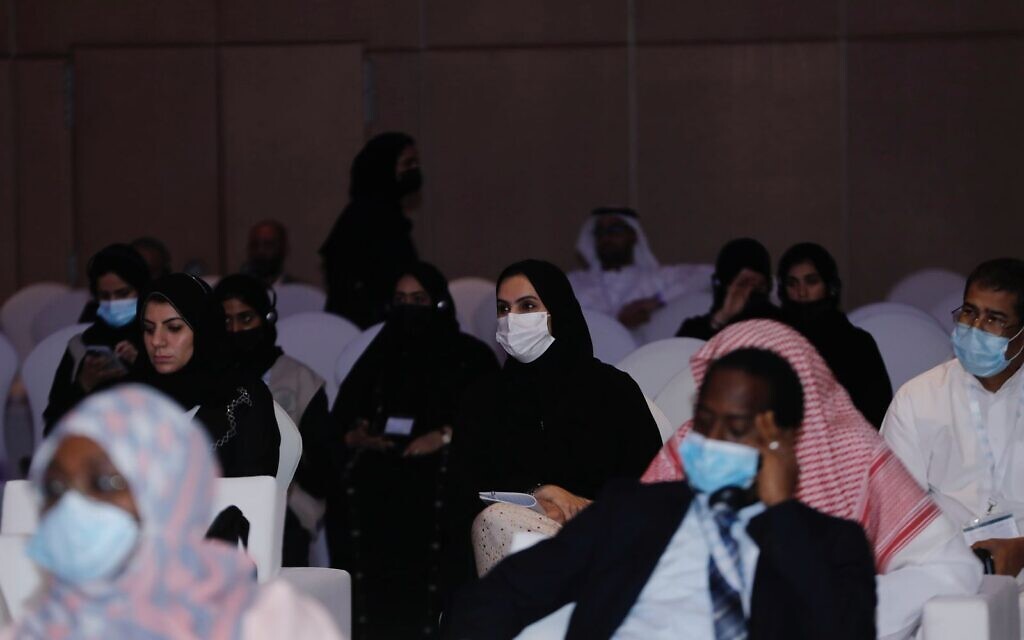 Participants at the conference came from all over the world.
Participants at the conference came from all over the world.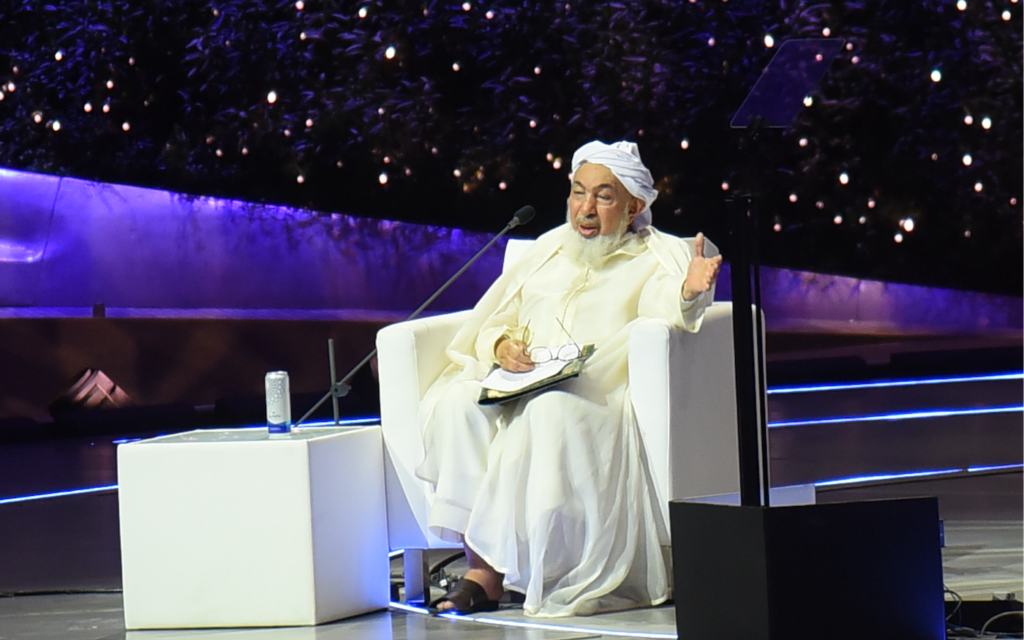
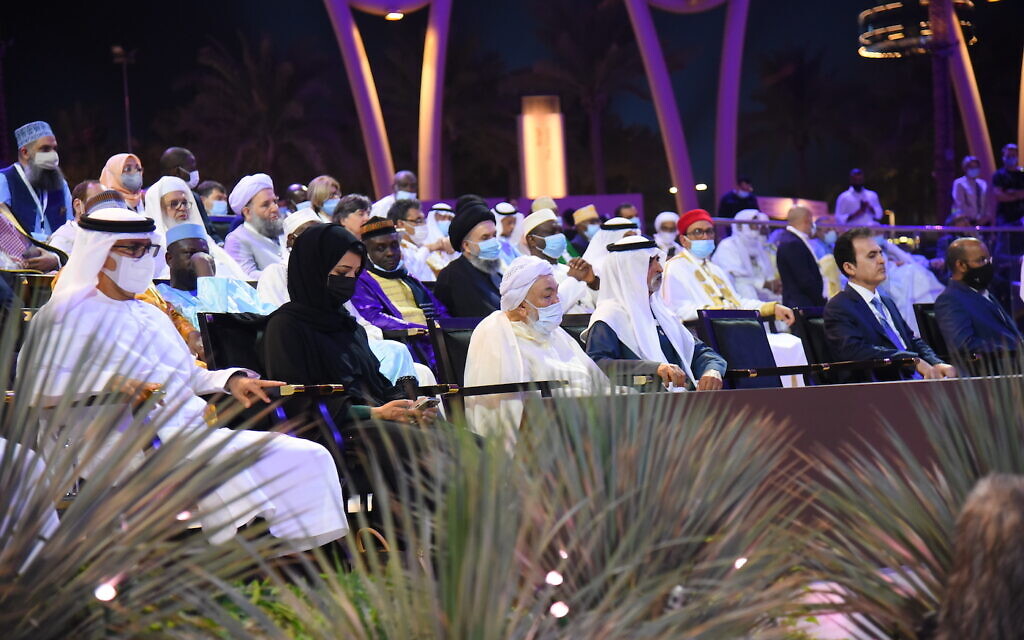
In one corner of the huge ballroom at the plush St. Regis Hotel, the mufti emeritus of Bosnia relays to two Jewish leaders concerns that ultranationalists in his country are seeking to play down the memory of the genocide there.
In another the Chief Rabbi of United Arab Emirates chats to a senior imam from America about fast expanding interfaith work in the States.
They are among over 250 Islamic scholars, academics and policy influencers from at least 35 locations – from India to Indonesia and Lebanon to London – that gathered in Abu Dhabi last month for the Forum for Peace, an initiative little known in the UK beyond a small number of religious leaders.
Get The Jewish News Daily Edition by email and never miss our top stories Free Sign Up
For three days, they learnt from each other, shared best practise and tackled issues like religious hatred and extremism.
Also invited to this annual assembly of thinkers from east and west were a handful of Christian and Jewish figures.
The backdrop could hardly have been more fitting: a conference conducted mostly in Arabic as classic Christmas songs filled the lobby in a city where Jewish delegates gathering to celebrate Chanukah is no longer a novelty.

But while interfaith activity is often dismissed for failing to delve deep enough into thorny topics or not involving figures with insufficient clout, such criticism can’t be levelled at the Forum.
As Rabbi Shoshana Boyd Gelfand, who represented the International Jewish Committee on Inter-religious Consultations, put it: “These were not fluffy interfaith folks. They were people with significant influence in their countries. I wasn’t expecting there to be such a diverse crowd speaking from the same hymn sheet. The conversations I heard gave me hope, there was a deep amount of introspection.”
If there was a hymn sheet that speaker after speaker was inspired by, it was the teachings of Sheikh Abdallah bin Bayyah, chair of the UAE’s Fatwa Council, a former vice-president of Mauritania and one of the world’s most revered Islamic scholars.
The 87-year-old uses authentic Muslim texts to challenge extremism and famously convened a conference to challenge a fatwa used by jihadi groups to justify terrorism, discovering they relied on the wrong transcription of just one verb 90 years earlier.
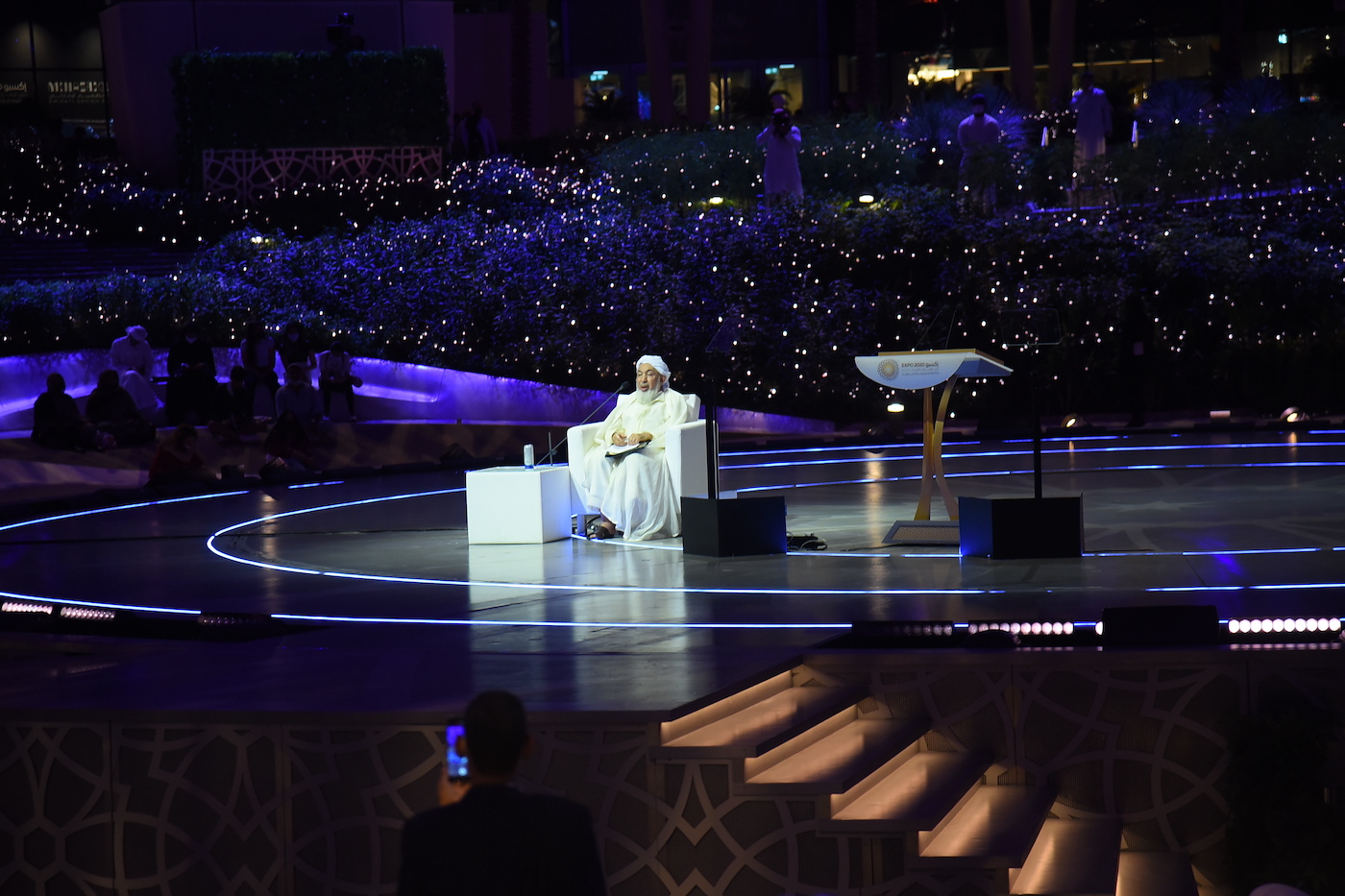
After the Arab Spring and the emergence of Daesh, bin Bayyah established the FFP in 2014 in the belief that such a global response – the first of its kind to tackle extremism – was essential. Organisers hold that the growth of extremism owes much to an education gap among some teachers charged with “applying decontextualised texts to the modern world”.
Around 1,000 delegates attended the 2014 meeting held under the patronage of Abu Dhabi’s leadership, and the sheikh’s subsequent conclusion that his vision could only be achieved through dialogue with other Abrahamic faiths saw participation expanded to rabbis and priests including Chief Rabbi Ephraim Mirvis, who spoke last year.
At the epicentre of the sheikh’s work is the so-called Marrakesh Declaration. Created to address the oppression of minorities in Muslim countries, the document draws on traditional texts and the Charter of Medina – which protected minorities at the time of the Prophet Muhammad – as well as the far more recent Universal Declaration of Human Rights to affirm equality between peoples.
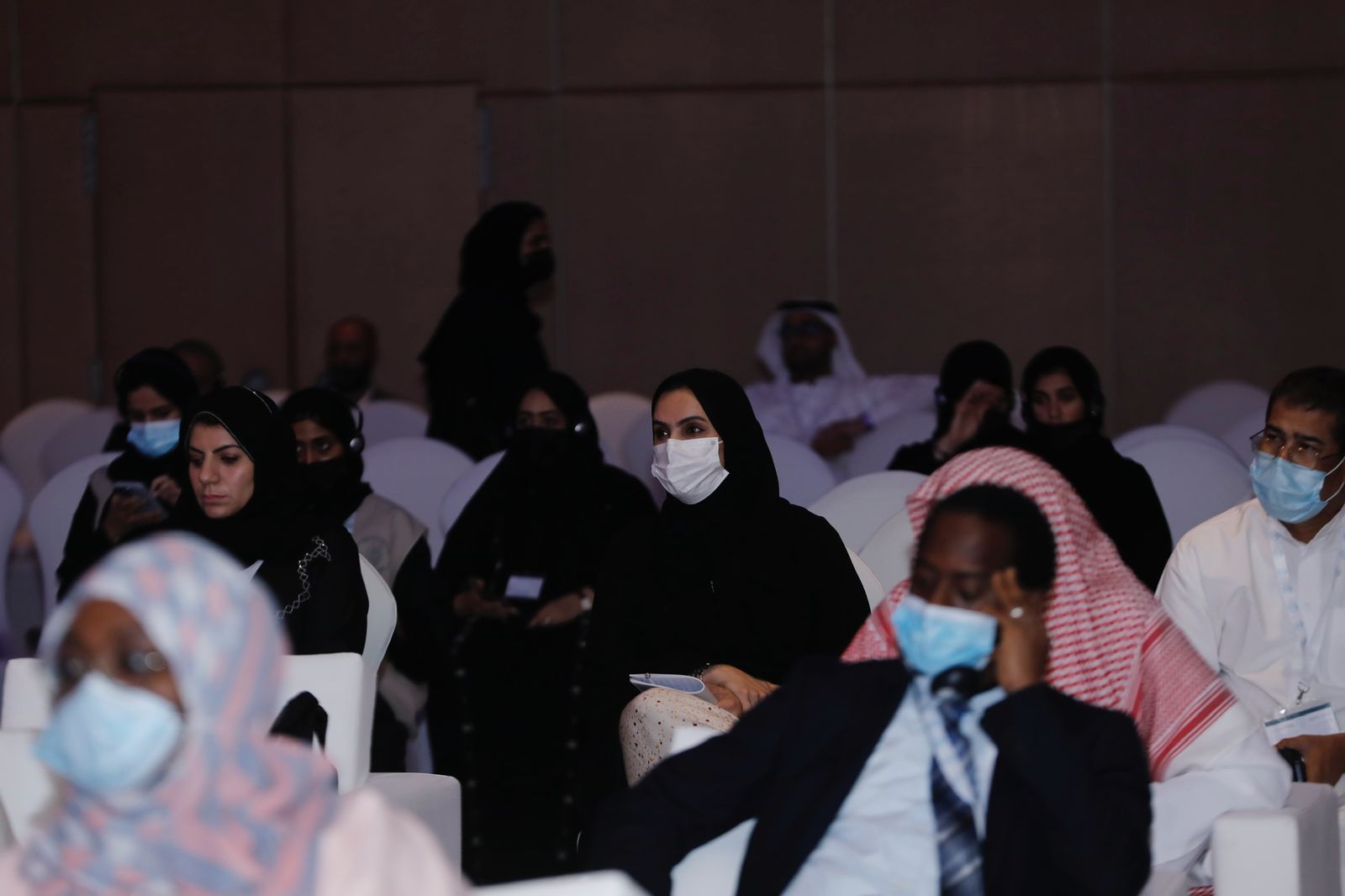
In the nation state, the sheikh told delegates in Arabic, “the relationship with the other constitutes an opportunity to explore spaces of interaction. There is no room for harassing others by denigrating their religious symbols or disrespecting their beliefs”.
Referring to the conference theme of inclusive societies, he added: “Historically citizenship was a discriminatory concept that differentiated between people according to race, religion and lineage. Citizenship is now a voluntary association to the nation state that is governed by the constitution. The most important component is the principle of shared duties and equal rights”.
It was a message reflected from a Jewish perspective by Rabbi David Rosen, one of one world’s leading interfaith figures, who also pointed to state-funded shariah courts in Israel as an example of inclusive citizenship.
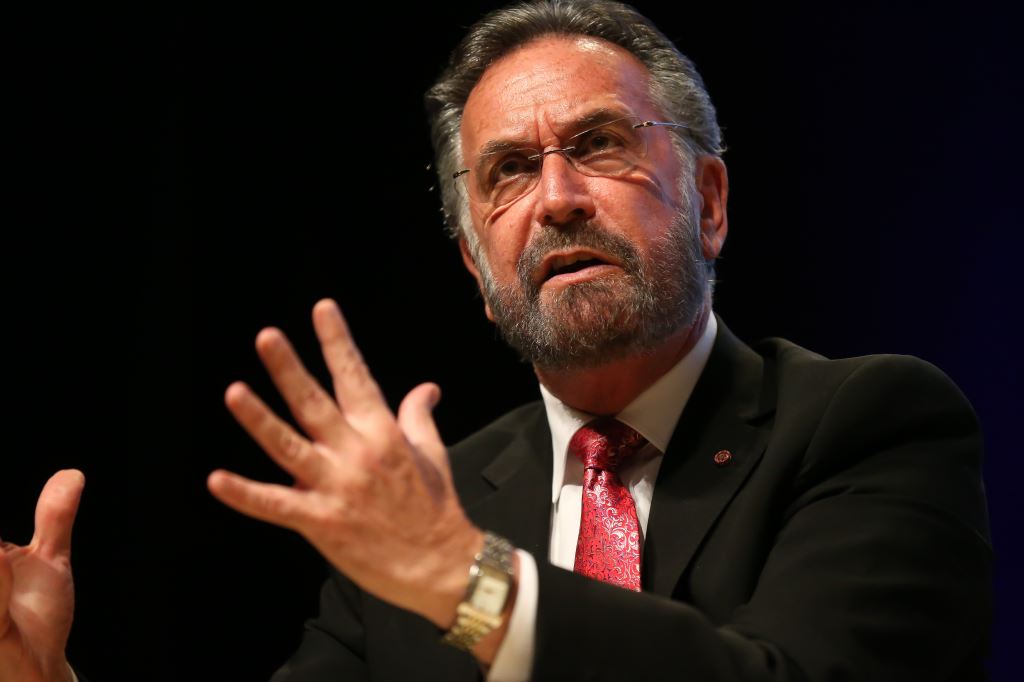
Addressing an audience that during the week included the mufti of Dubai and the Maldives’ minster for Islamic affairs, Sheikh Usama al-Sayid al-Azhari – an advisor on religious affairs to Egypt’s president – drew on Islamic texts in speaking of the need to look after minorities while Lebanese writer Radwan al-Sayed portrayed the Marrakesh Declaration as a watershed moment. Before it was issued, he suggested, scholars weren’t widely “pushing back” and were “outflanked by extremists”. He suggested Jews and Christians knew “about our heritage more than” many Muslims but insisted that, contrary to what some believe, the faith had not “frozen in time”.
But American Imam Mohamed Magid acknowledged such intellectual documents can’t by itself make a difference in practise.
“There’s no value if there aren’t people creating that value on the ground,” he told Jewish News: “People who led the civil rights movement – including a rabbi working with Dr King – activated their religious values combined with American values and the constitution and they challenged the status quo. We need that to happen. We need to train people to say we’re not going to accept discrimination, religious nationalism, human trafficking”.
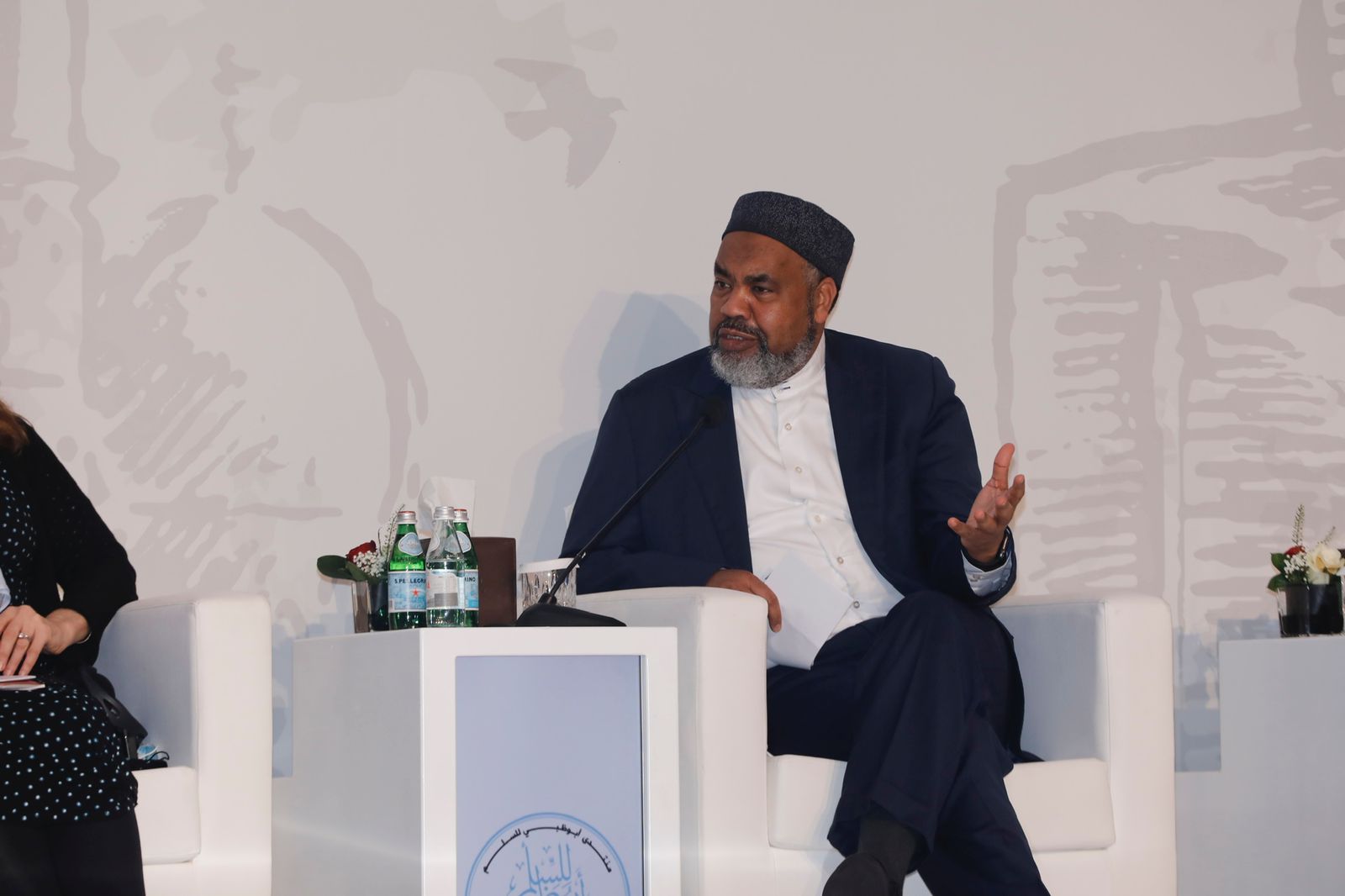
Magid is one of the founders of the Caravan of Peace, which grew out of the Forum and which brings together an imam, a priest and a rabbi in US cities across the States to each enlist the support of 10 others to mix socially and carry out joint social action projects.
It was after relationships were built via the programme – now operating in 20 cities – that a pastor in Seattle handed over the keys of his church to a mosque burnt to the ground two months ago and local Muslims offered solidarity in their dozens after the atrocity at the Tree of Life Synagogue in Pittsburgh.
Acknowledging that Muslim-Jewish relations in the US were still “evolving”, the imam said there needed to be an acceptance that “we can agree to disagree” on some issues while still standing up against hate.
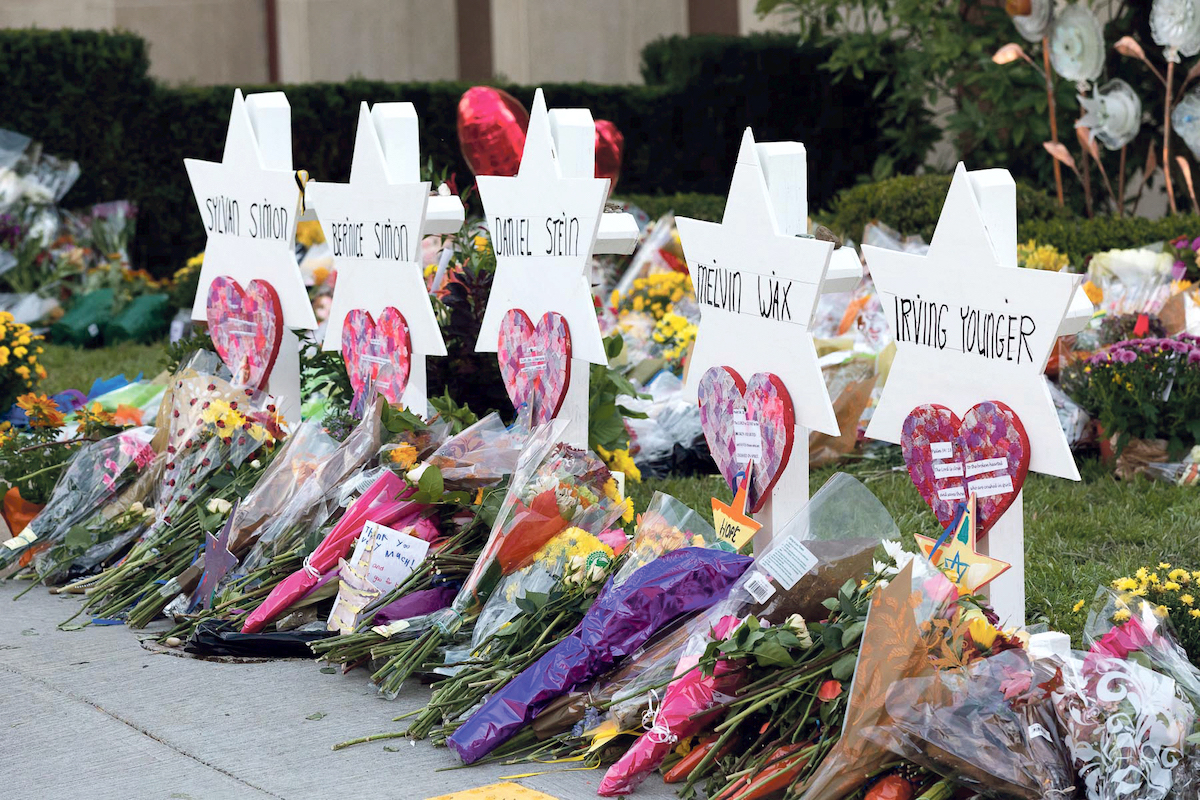
As the conference drew to an end, the UAE’s Chief Rabbi Yehuda Sarna presented bin Bayyah with a tzedakah box bearing the Hebrew words for ‘you shall love’ – a reference to the commandment in the Torah and Hadith to ‘love your neighbour as yourself’. For Sarna, it was the Marrakesh Declaration that signalled to the country’s Jewish community “that we could keep on building here” long before normalisation with Israel. ”When I used to come and give shiurim in 2016-17 so much of the content was about comparing the Marrakesh Declaration to George Washington’s letter to the Hebrew Congregation of Newport [promising full liberty to all regardless of faith].
He goes so far as to liken the Forum to Vatican II, a watershed moment in improving relations between Jews and the Catholic Church. “The common thread at this conference was the unabashed authentic Islamic view that religious minorities of every shape and colour need to be protected, and that Muslims living in non-Muslim countries need to respect the laws of the countries they’re in.”

Addressing sceptics, he added: “I think one of reasons why for many Jews in the Diaspora and many Israelis the Abraham Accords came as a shock was because it messed with a stereotype of what an Arab is. Many people who live here genuinely have such an accepting disposition. You see a lot of ferment here, from my experiences it’s not uncommon in these settings.”
The importance of the gathering to the UAE was underscored by a speech by Dr Ali Al Nuaimi, who helped to pave the way for the Abraham Accords, and by a special welcoming event on the main stage at Dubai Expo, addressed by the country’s minster for tolerance.
Speaking by video link back in the conference hotel, Boris Johnson’s envoy on religious freedoms Fiona Bruce MP described inclusive citizenship as “one of the most pressing issues of today”.
Other UK speakers included New North London’s Rabbi Jonathan Wittenberg, who joined a panel on the role of faith communities in tackling climate change, and Esme Partridge and Russell Rook from the Good Faith Partnership, who spoke of the potential for social media to bring unexpected connections across faiths and borders – and so boost inclusive citizenship.
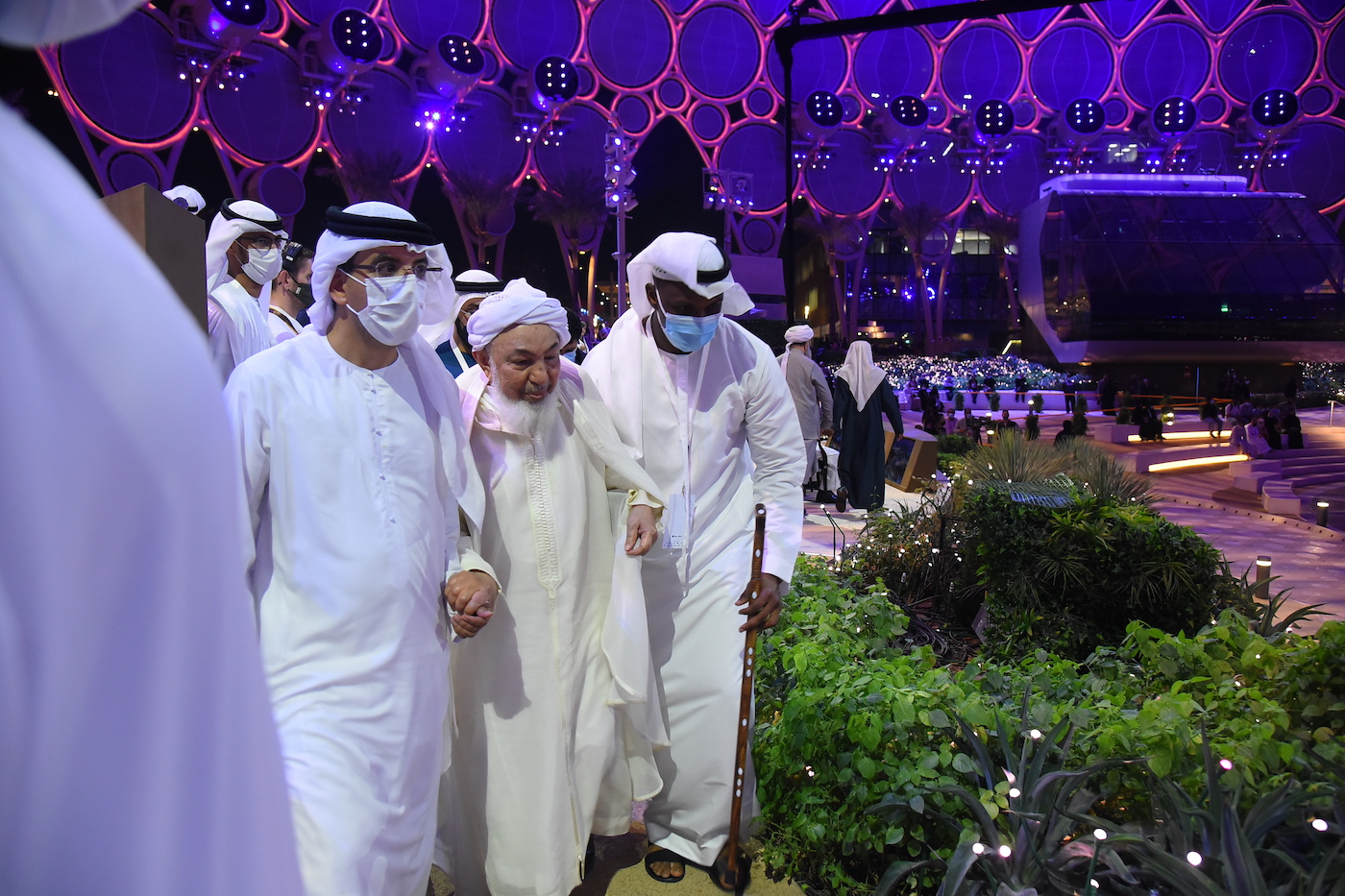
Richard Sudworth, an advisor to the Church of England, brought greetings from the Archbishop of Canterbury as he addressed the Forum virtually, railing against “religious illiteracy” that “plagues too many in public life”. He said some believed you couldn’t proudly hold on to the Union flag and a faith at the same time. “As if it would be like supporting Manchester United and Manchester City,” he joked.
Organisers plan to bring the FFP’s work to Britain to provide an important bridgehead to the English-speaking world, making available the insights and resources of the Forum as well as initiating partnerships with organisations and government. Liz Haris-Sawczenko, former director of the Council of Christians and Jews, will act as advisor to the Forum for Peace UK.
Zeshan Zafar, the British executive director of the Forum for Peace, said: “Among the UK’s Muslim leaders there are many very effective communicators who are absolutely committed to co-existence. But, as elsewhere, we need better mechanisms and frameworks in the education of Islamic scholars and jurists, and with God’s will, this is changing, but such changes take time for a relatively new community.
“In terms of the divided nature of Muslim communities in the UK and by extension in the West, it is very important that we need to not emphasise our particular identity over the general identity we have as British Muslim citizens, rather we build on our shared values with the general society, leading to lasting peace and a stronger-civic involvement between all of us. If we we focus on preserving our particular identity over the general identity, then that’s where we have a tension. Some people will think that their particular identity prevents them dealing with others, which is why we have the danger of extremist thinking.”
He said the sheikh is hoping to make life easier for Muslims by reassuring them that there can be a sound relationship between religion and the modern world, enabling confidence to speak out against extremist narratives. But he believes it will take 10-15 years for the ideas of the forum to take root. Zafar said: “We don’t want to become another talking shop, but to be a resource and enlightenment for the major challenges facing Islam, religious coexistence and the greater problems of the world.”

Thank you for helping to make Jewish News the leading source of news and opinion for the UK Jewish community. Today we're asking for your invaluable help to continue putting our community first in everything we do.
For as little as £5 a month you can help sustain the vital work we do in celebrating and standing up for Jewish life in Britain.
Jewish News holds our community together and keeps us connected. Like a synagogue, it’s where people turn to feel part of something bigger. It also proudly shows the rest of Britain the vibrancy and rich culture of modern Jewish life.
You can make a quick and easy one-off or monthly contribution of £5, £10, £20 or any other sum you’re comfortable with.
100% of your donation will help us continue celebrating our community, in all its dynamic diversity...
Engaging
Being a community platform means so much more than producing a newspaper and website. One of our proudest roles is media partnering with our invaluable charities to amplify the outstanding work they do to help us all.
Celebrating
There’s no shortage of oys in the world but Jewish News takes every opportunity to celebrate the joys too, through projects like Night of Heroes, 40 Under 40 and other compelling countdowns that make the community kvell with pride.
Pioneering
In the first collaboration between media outlets from different faiths, Jewish News worked with British Muslim TV and Church Times to produce a list of young activists leading the way on interfaith understanding.
Campaigning
Royal Mail issued a stamp honouring Holocaust hero Sir Nicholas Winton after a Jewish News campaign attracted more than 100,000 backers. Jewish Newsalso produces special editions of the paper highlighting pressing issues including mental health and Holocaust remembrance.
Easy access
In an age when news is readily accessible, Jewish News provides high-quality content free online and offline, removing any financial barriers to connecting people.
Voice of our community to wider society
The Jewish News team regularly appears on TV, radio and on the pages of the national press to comment on stories about the Jewish community. Easy access to the paper on the streets of London also means Jewish News provides an invaluable window into the community for the country at large.
We hope you agree all this is worth preserving.
- Sheikh Abdallah bin Bayyah
- Forum for Peace
- United Arab Emirates
- Marrakesh Declaration
- Universal Declaration of Human Rights
- Rabbi David Rosen
- Radwan al-Sayed
- Features
- News
- Imam Mohamed Magid
- Caravan of Peace
- Rabbi Yehuda Sarna
- Fiona Bruce MP
- Rabbi Jonathan Wittenberg
- Richard Sudworth
- Esme Partridge
- Russell Rook
- the Good Faith Partnership
- Zeshan Zafar
- Elizabeth Haris-Sawczenko
- Council of Christian and Jews (CCJ)
-
By Laurent Vaughan - Senior Associate (Bishop & Sewell Solicitors)
-
By Laurent Vaughan - Senior Associate (Bishop & Sewell Solicitors)
-
By Laurent Vaughan - Senior Associate (Bishop & Sewell Solicitors)
-
By Laurent Vaughan - Senior Associate (Bishop & Sewell Solicitors)
-
By Brigit Grant
-
By Brigit Grant
-
By Brigit Grant

